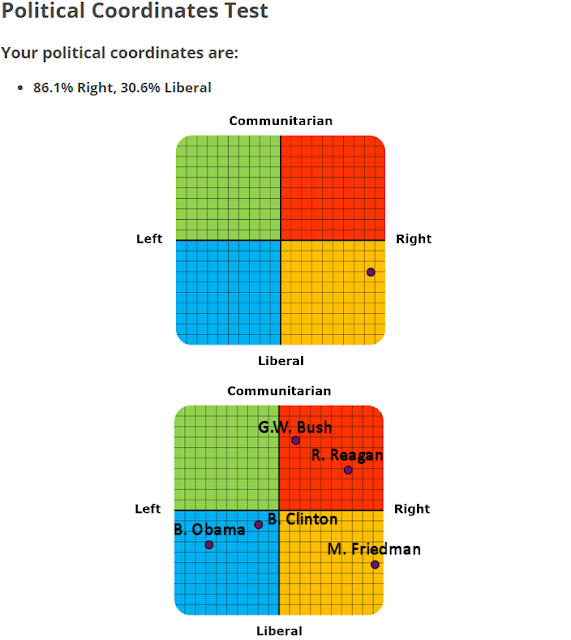“The few months preceding an election have always been times of serious political divisions, but the divisions and meanness we are experiencing in this election, especially at the presidential level, seem to be unusually wide and ugly,” [Dallin H Oaks] expressed.
“We should also remember not to be part of the current meanness,” Elder Oaks stressed. “We should communicate about our differences with a minimum of offense.”
He continued, “TV, the internet, and the emboldened anonymity of the blogosphere have replaced whatever remained of the measured discourse of the past and have facilitated the current ugliness. Nevertheless, as the First Presidency always reminds us, we have the responsibility to become informed about the issues and candidates and to independently exercise our right to vote."
("Elder Oaks Addresses Elections, Hope and Freedom at BYU: Students encouraged to be civil on social media", Mormon News Room, 13 Sep 2016)
-
From Jack Hunter, Oct 23, 2014
A new Pew Study showing how liberals and conservatives get their news contained an interesting stat—44 percent of “consistent liberals” have “hidden, blocked, defriended, or stopped following someone” on Facebook because they disagreed with their political postings. 31 percent of “consistent conservatives” have done the same.
The study notes that liberals generally see more ideological diversity in their social media feeds than conservatives do, which might be the reason for liberals unfriending people they disagree with more than conservatives.
But I’m less interested in whether liberals might defriend more than conservatives, than in who they’re actually defriending. Are they just Facebook friends?
Or real ones?
I have unfriended all sorts of people from my Facebook over the years but can’t recall a single time I’ve blocked or quit following someone I would genuinely consider a friend. I’ve certainly never unfriended a family member.
In fact, I’ve seen some pretty asinine views pop up in my Facebook feed that I endure simply because the come from friends or family. “I know this person,” I think to myself. A particular view they hold that I don’t like is not representative of that person as a whole.
If thinking logically, someone should subscribe to a particular brand of politics because they believe that philosophy will make life better for themselves, their friends and their families. Humans being humans, sometimes those friends and family will disagree. But the ultimate goal, supposedly, is betterment for everyone.
Friends and family should come first, politics second.
Ideologues have a tendency to make their politics so much a part of their identity that they can lose focus of what’s important. Sometimes being a “liberal” or a “conservative” or even a “libertarian” becomes the priority. What their friends and family think about politics becomes more important than the fact that they are friends and family. It’s hard to imagine anything dumber than parents and their children, or good friends, who don’t talk to one another over who someone might have voted for. Yet, we know this happens.
It’s hard to think of anything sillier than unfriending someone you have genuinely cared about up until the point you disagreed with them on Facebook. Yet, I’m sure this happens as well.
Online and in life, it is important to separate the personal from the political as much as possible. We believe what we believe because we think it will help the ones we love; we should never love what we believe so much that it damages our flesh-and-blood relationships. “Liberal” and “conservative” are mere political identities. “Mom,” “Dad,” “daughter,” “son” and “best friend” are our real identities.
Political ideologues often look down on others who are not as attuned to the news of the day as they are. But the opposite is also true.
Normal people more concerned with putting food on the table or attending their kid’s dance recital than what politicians say, probably see many ideologues as crazy people disconnected from what’s important.
Often, they’re right.I like to have some diversity of opinions in my friends. I find that it helps me to understand why I believe the way I do. It has also brought about some changes that I think my past self would have been surprised of.

